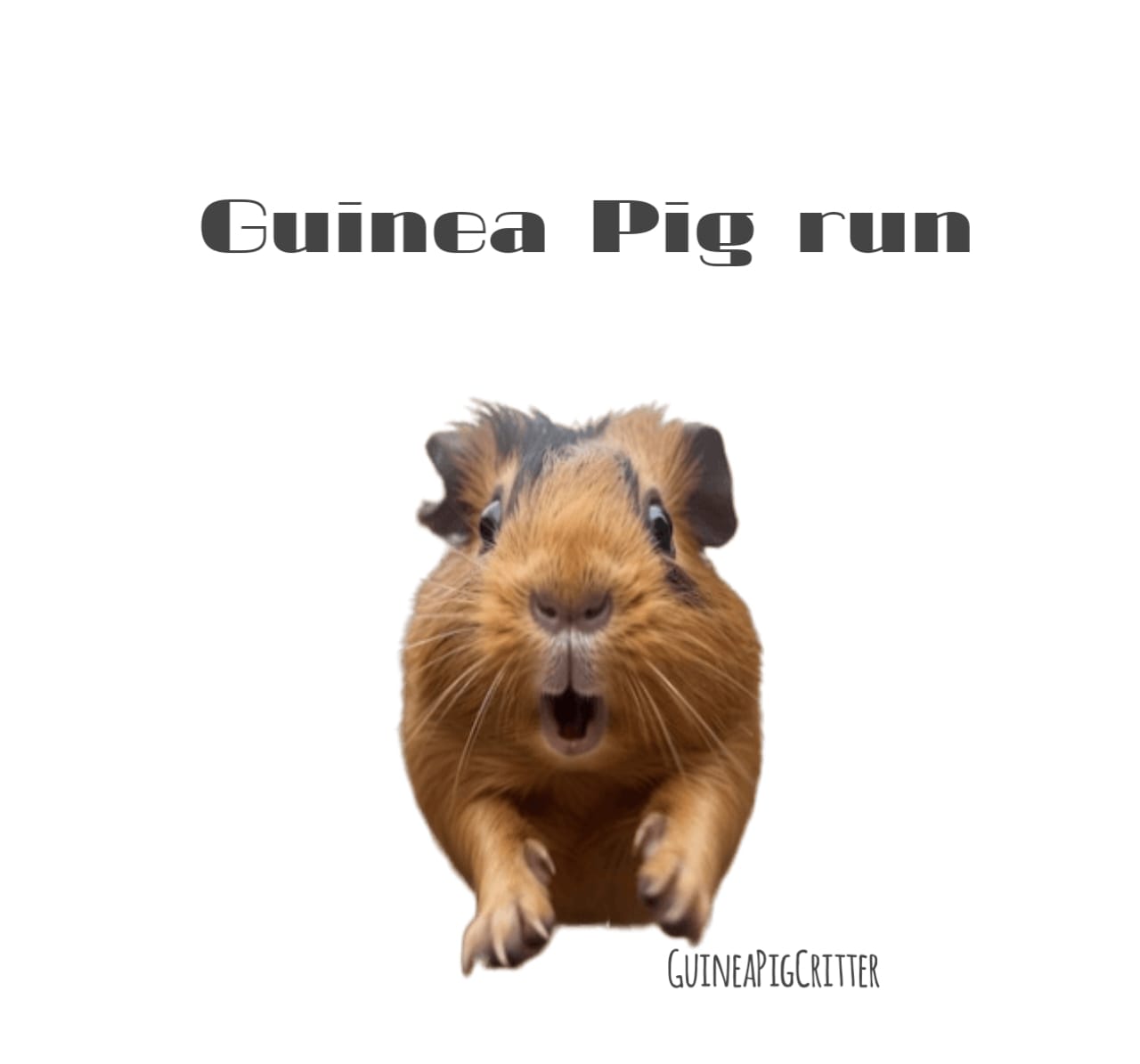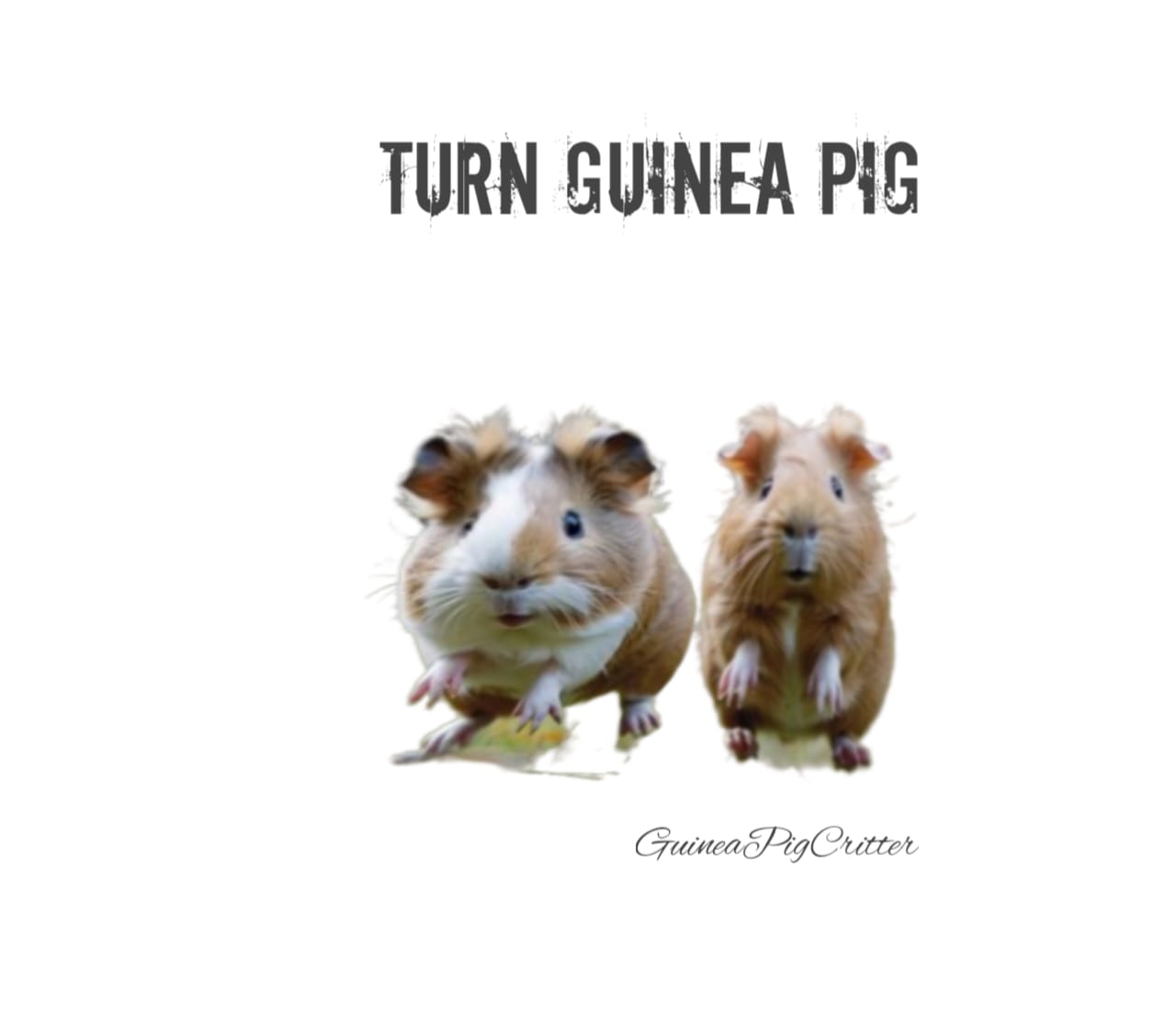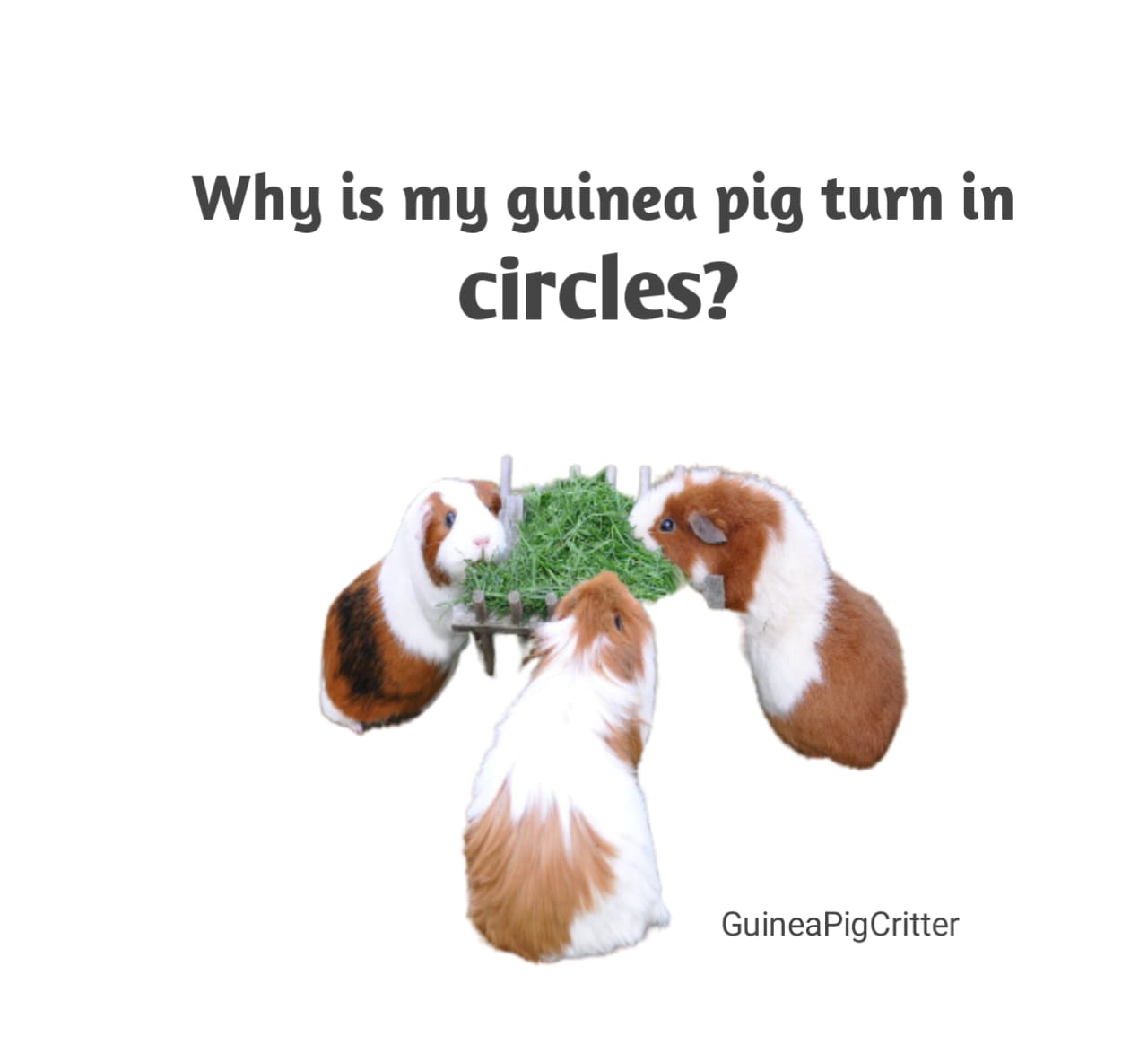This article aims to answer the question regarding the underlying reason’s why a guinea pig turns while being raised. While excitement may be the reason for one case, lack of sufficient nutrition leading to stress in the animal may be more serious and should be addressed appropriately.
Guinea pigs, like many other pets, have a distinct character and usually form very playful characteristics. But what to do if one day you see your guinea pig in circles and ask yourself, “is it okay, or should i be concerned?” As age does not matter, sometimes even first time owners can be put off by the sight of a pet revolting around the axis.
Check this post: Can you dress up guinea pigs?
Common disposition or abnormality
All the guinea pigs have their favorites and can walk when they are happy. Human beings get shocked when they discover that their pet is turning it clockwise and walking in circles. Such a behavior raises many questions as to understanding the definition of abnormal behavior in the pet.
When is circling a normal behavior?
There are instances when a guinea pig will turn or circle as a form of play or happiness. For example, if you are going to provide them with their preferred food or they think that it’s the right time to play, a few circles will do them no harm.
Considering these behaviors lasted for no more than a couple seconds, occurred spontaneously and were accompanied by squeaks or by ‘pop corning’, which is a very particular type of jump associated with play.
Guinea pigs are considered to be territorial animals, and so they may choose to claim certain areas of their enclosure as their own by making circles in that particular area. As far as the actual structure of this behavior goes, it tends to be short and localized, and usually includes some form of sniffing or body rubbing.
Excessive or problematic – when otherwise innocent circling becomes an issue
If there is no reason or cause and the behavior is repetitive, it also could denote a medical condition or a behavioral problem. Normal spinning for fun and circling for a problem are very easy to distinguish if one knows the duration of the practice, its severity, the accompaniments, and the nature of the action (voluntary or not).
Let us now analyze the most frequent causes of the behavior in the description above, i.e., the excessive or abnormal circling behavior.
Tendency to suffer from certain diseases
Delusional circling can be secondary to a number of diseases, most of which require investigation by a veterinarian. It is important to recognize such warning signs that can tell you that your pet guinea pig might have a health related issue.
Ear infections
Among the various diseases, one that affects the ears is an ear infection. Influenced by internal otitis media, the guinea pig balances itself with its inner ear. Head tilt, repetitive circling, and an uneasy sensation are also signs that can be observed because guinea pigs often become lost in space when one of their ears becomes infected.
Signs of ear infections:
Head tilt: one of the head symptoms where your cavies holds head in one direction due to infection.
Coordination abilities: not able to walk straight, or stand still.
Ear scratching: itching the ear area too often.
Ear discharge (although rarer).
In case of an ear infection, veterinarians should be alerted without the delay given the fact that ear infections are very painful to guinea pigs and if they are treated with time, it is possible that hearing loss or other complications like balance issues occur.
Neurological issues
Circling can, at times, suggest some sort of a neurological alteration. There are some brain diseases e.g. Tumor or blunt injury that can lead to such orientation disturbance or behavior circular in nature. Neurosensory problems are more serious than the other common problems and they are more often accompanied by some other indications going together.
Symptoms of neurological problems:
- Seizures or twitching attacks.
- Depression or abrupt change in normal behavior.
- Difficulty supporting the body weight: trouble in standing or falling down.
In such situations, a veterinarian may advise a number of tests, including imaging to target the cause. Though unfortunately neurosensory disorders are quite treacherous however in some instances the disease breaking and patient with early symptoms may have a better future.
Parasites or mites
The presence of parasites such as mites can result in a lot of pain and discomfort; which may be expressed in the form of odd behaviors, for example, circling etc. If guinea pigs have mites, they may be sore, especially around the head and ears, and ache as well. This might lead to excessive scratching, fur loss, or abnormal behavioral patterns.
Signs of a parasite infestation:
- The constant scratching of skin or biting it.
- Loss of hair or bald patches.
- Scabs or mad red skin.
- Nervousness or irritable feeling.
If any of these are present in addition to the circling, please take treatment as soon as possible. Mites and other parasites will inflect a lot of pain into your guinea pig and will exacerbate other conditions if not treated.
Vitamin c deficiency (scurvy)
Vitamin c is an essential vitamin that is not synthesized by guinea pigs, and so in the absence of a balanced diet, they can suffer from scurvy or its related diseases. A vitamin c deficiency could lead to weakness, painful joints, abnormal behaviors, for example, circling, etc.
Symptoms of vitamin c deficiency:
- Weakness and reluctance to move.
- Pain and swelling of the joints.
- Decreased weight.
- Coat is shaggy or damaged.
Do not forget to include vitamin c-rich food sources such as salads, bell pepper, and certain fruits for your guinea pig. You may also wish to provide them with vitamin c drops as part of their diet, but only after getting recommendations from a vet on appropriate usage.
Reasons for circling due to behaviors
Unequal circling that can be regarded as health related problems is uncommon for instance circling to one side of the cage. Guinea pigs breed make up a larger portion of the population and some have certain aspects of typical behavior that might trigger the repetitive large circular movements such as circling. Some of these behaviors are considered to be caused by environmental stressors.
Boredom and environmental stressors
Cognitive incapability and helplessness can be two triggers of the circadian rhythms or repetitive actions such as a specific part being circled. A variety of stimulations is important for guinea pigs well-being. In the absence of adequate stimulation such as toys, contact or even space, guinea pigs may substitute circling or pacing as coping mechanisms for boredom or anxiety.
If there were no toys present in the cage for guinea pig he may become aggressive due to boredom. Introduce fresh and appealing toys or tunnels to the cage and try using more activity with him outside the cage.
Territorial marking.
Guinea pigs display a territorial nature, and circling, in some cases, might serve the purpose of claiming a certain area. It is more common to see this behavior when one of the guinea pigs is new to the family circle or when the arrangement of their confinement is changed.
How to identify territorial behavior:
- Moving around a chosen spot in an area in circles over and over again.
- Using parts of the body or body parts to touch or rasp on certain surfaces or items.
- Localization marking (gland or urine marking) having some limitations on the continent.
This behavior is common for such a short period of time and should not panic a guinea pig owner unless it becomes chronic. If a new guinea pig has been added, it is appropriate to give the animals some time for both the relations and the habitat.
What to do if for some reasons, your guinea pig keeps turning in circles
When the guinea pig starts to behave in this way, it becomes an issue. To begin with, one must ensure that the appropriate mechanisms underlying the behavioral concern are addressed. Here are t some of helpful measures that one ought to take.
Observe and write notes
Look closely at the times and the frequency with which your guinea pig engages in the circling behavior. Does it occur during certain times of day or in relation to certain events? Are there other changes in the pet, such as eating or drinking less, increase or decrease of aggression, or noticeable changes in overall appearance?
Taking notes or keeping various other records will help you give information to the veterinarian which may aid in diagnosing the problem more easily.
See this post :-How Can Guinea Pigs Jump High?
Expand your guinea pig’s environment
If your guinea pig engages in circling movements as a result of stress or boredom, it is important to first improve their environment. Make sure that your guinea pig has enough room to move about, a wide range of toys, and plenty of social interactions whenever possible.
Here are some tips for enriching your guinea pig’s environment:
Tunnels and hideouts: tunnels are a great decorating tool, as most pig trot through them and gage their length, always warming up to or snoozing in an appropriately sized space.
Interactive toys: provide toys that involve problem-solving or foraging.
Social time: try to get to know your guinea pig outside of the cage and offering a partner, if it is the only one, a gunny pig (which should be gradual as well).
Conclusion
Circling behavior in guinea pigs varies widely – from that which most would consider normal, even playful or desirable to those that are alarming, clinically concerning and most likely medically serious.
In order to discern the exact reason as to why the guinea pig is moving in circles, one thing which needs to be considered is the history along with any other signs that accompanied the present behavior.
Whether the cause is caused by ear infection or stretch which tends to be minor, paying close attention to one’s self and being involved actively in seeking help has high benefits.
If your guinea pig keeps circling around the same spot or other abnormal behaviors are present, visit your veterinary clinic right away. It is crucial for the welfare and happiness of your pet as in most cases, early intervention helps.


